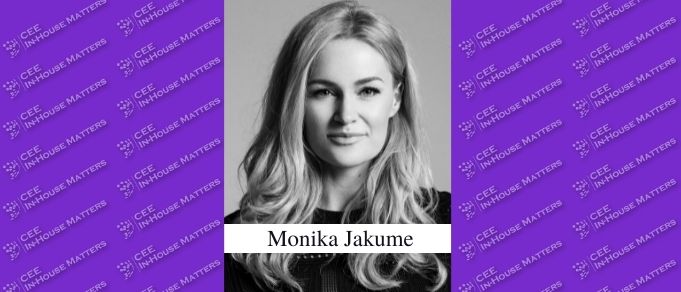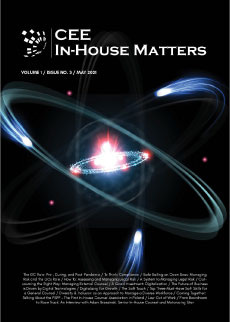On December 6, 2021, CEE Legal Matters reported that Motieka & Audzevicius had successfully defended Olympic Casino Group Baltija before the Supreme Administrative Court of Lithuania. CEE In-House Matters spoke with Monika Jakume, Legal Counsel at Olympic Casino Group Baltija, to learn more about the matter.
CEEIHM: Tell us about Olympic Casino Group Baltija and its operations in Lithuania.
Jakume: UAB Olympic Casino Group Baltija is one of the oldest and biggest land-based and online gambling organizers in Lithuania operating Olympic Casinos and Olybet. The company belongs to an international group of companies of Olympic Entertainment Group, operating in multiple countries of Europe.
CEEIHM: Motieka & Audzevicius recently represented the company in front of the Supreme Administrative Court of Lithuania. What was the matter about?
Jakume: In 2019, the Lithuanian gambling regulator – Gaming Control Authority (GCA), concluded an investigation and decided that the company allegedly violated AML regulations, because it did not additionally identify and registered the identity of the clients and their transactions, even though the company provided evidence that all the necessary data was filled out in an electronic journal.
CEEIHM: What was the national gambling authority's claim against Olympic Casino Group Baltija?
Jakume: The GCA argued that the electronic journal it took during an on-site inspection was only used by the company for administrative aims, not for AML requirements, and considered it to be unfit for additional identification of the clients. Therefore, the GCA imposed a EUR 495,900 fine on the company that was ultimately annulled.
CEEIHM: How did you prepare for your defense and what were your main arguments?
Jakume: Firstly, Motieka & Audzevicius was asked to carry out an internal investigation. We wanted to be sure that we are perfectly in line with all the obligations of the AML regulation. The designated team cross-examined every employee, who was related to the matter investigated by the GCA, including the AML officers and managers. Simultaneously, our internal documentation was reviewed and external expertise of security-footage of the disputed events was ordered. As a result, they provided a report that confirmed that there was no infringement of any kind and prepared a defense strategy for the case.
As the law does not regulate precisely how entities must additionally verify client’s identity and register, the company argued that it uses an electronic journal where all information about certain clients and their transactions is registered. The fact that the journal was electronic and not paper-based did not change the fact that registration was done properly.
During court proceedings, several hearings took place, and representatives of the company – gambling operations and security professionals working for the company for several years – presented their testimony and precise explanations of the process. The company argued that it registers all the transactions of every client in an electronic journal. It was clear that the company follows AML requirements even more strictly than the law prescribes.
The Vilnius regional administrative court and the Supreme Administrative Court of Lithuania both supported the company’s arguments and ruled in its favor. The courts stated that the Company identified and registered the identity of the clients and their transactions as it is prescribed by Art. 9(1) and 9(9) of the Law on ML/TF Prevention of Lithuanian Republic (LMLTFP). The law does not regulate precisely how entities must additionally verify client’s identity, therefore the courts agreed that the company did everything right, and in particular, that the fact that the company used the journal for its internal administrative aims does not preclude it from using the same journal towards the aims of Article 9 of the LMLTFP (the GCA argued otherwise).
CEEIHM: Why did you pick Motieka & Audzevicius to represent you on this matter?
Jakume: Motieka & Audzevicius is a well-known and respected law firm in Lithuania. They are known for their experience in regulatory affairs and dispute resolution, that is why the company asked them to represent them in the case. Audzevicius proves to be persistent and has systematic and business-oriented thinking. The team quickly understood our business processes and identified how they correspond with the legislation. We continue to work with Motieka & Audzevicius because they always find an effective solution that not only satisfies regulations but is also smart business-wise.


